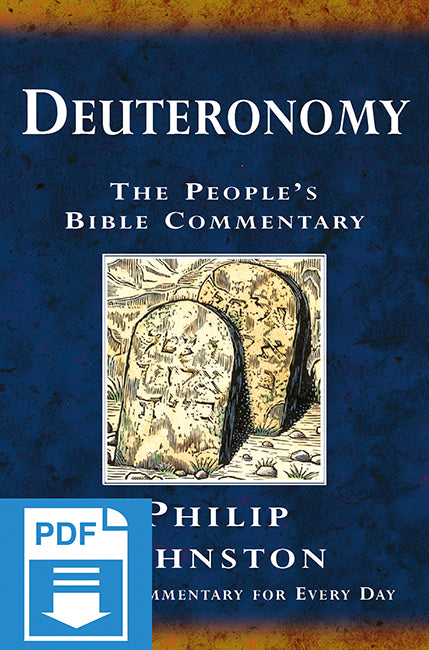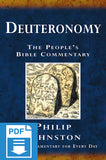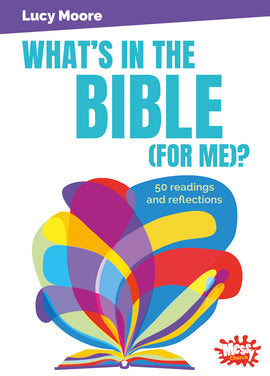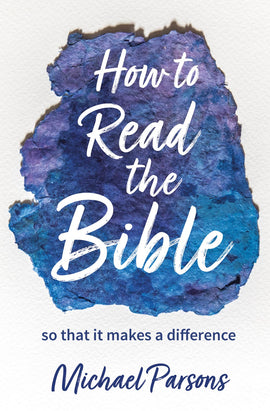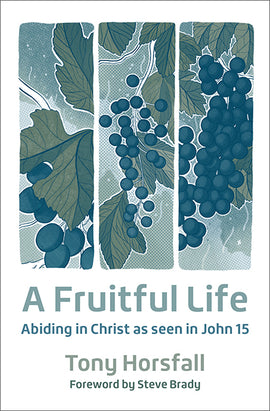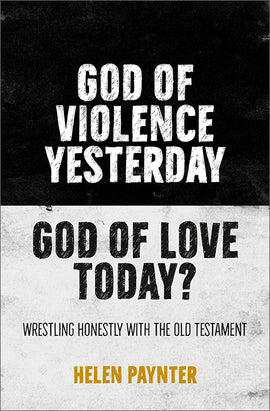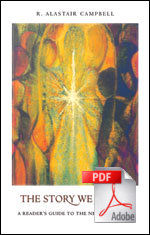The People's Bible Commentary - Deuteronomy: A Bible commentary for every day
In some Jewish traditions, Deuteronomy is the first book of scripture taught to children. It presents the law of Moses as a coherent whole, including material from Exodus, Leviticus and Numbers. But Deuteronomy is as much about encouragement as about rules, and is full of guidance, help and exhortation. This is stressed repeatedly with phrases more appropriate to the pulpit than the law court, such as 'hear', 'observe', 'love' and 'obey'.
Please note that this book is no longer in print, but is available as a digital download (PDF).
| Title | The People's Bible Commentary - Deuteronomy: A Bible commentary for every day |
| Author | Philip Johnston |
| ISBN | |
| Description | In some Jewish traditions, Deuteronomy is the first book of scripture taught to children. It presents the law of Moses as a coherent whole, including material from Exodus, Leviticus and Numbers. But Deuteronomy is as much about encouragement as about rules, and is full of guidance, help and exhortation. This is stressed repeatedly with phrases more appropriate to the pulpit than the law court, such as 'hear', 'observe', 'love' and 'obey'. For Christians, Deuteronomy is one of the three books most quoted in the New Testament, along with Psalms and Isaiah. Studying it is a key part of seeing how the Bible fits together as a whole, and how the Old Testament lays a theological basis for Christian faith. |
| Details |
|
In some Jewish traditions, Deuteronomy is the first book of scripture taught to children. It presents the law of Moses as a coherent whole, including material from Exodus, Leviticus and Numbers. But Deuteronomy is as much about encouragement as about rules, and is full of guidance, help and exhortation. This is stressed repeatedly with phrases more appropriate to the pulpit than the law court, such as 'hear', 'observe', 'love' and 'obey'.
For Christians, Deuteronomy is one of the three books most quoted in the New Testament, along with Psalms and Isaiah. Studying it is a key part of seeing how the Bible fits together as a whole, and how the Old Testament lays a theological basis for Christian faith.
Dr Philip Johnston has taught the Old Testament studies for over twenty years in colleges in Belfast, Cambridge, St Andrews and now Oxford, where he is Director of Studies at Wycliffe Hall. He has written or edited several theological books, notably Shades of Sheol: Death and Afterlife in the Old Testament (Apollos, 2002).

